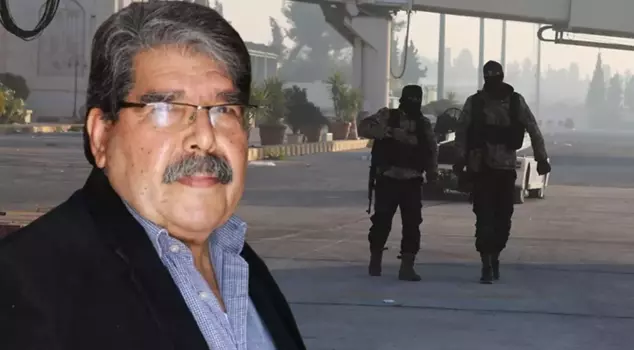
06.12.2024 12:50
The advance of the opposition in Syria continues. As the opposition approaches Damascus, a notable statement has emerged. Salih Muslim, co-chair of the YPG/PYD, said, "I am optimistic about HTS. They are also Syrians. We are ready to engage in dialogue with Hayat Tahrir al-Sham to build a future of coexistence in Syria."
On November 27, armed opposition groups that launched an operation against the Bashar al-Assad regime in Syria captured Hama last night, following Aleppo, Idlib, and Tel Rifaat. It was also stated that the opposition is very close to reaching the city of Homs, which is the last stop before the capital, Damascus.
CALL FOR DIALOGUE WITH HTS FROM SALIH MUSLIM
As hot developments continue to come from the region, a noteworthy statement was made. Salih Muslim, co-chair of YPG/PYD, stated that they are ready for dialogue with Hayat Tahrir al-Sham (HTS). Speaking to Al Arabiya television, Muslim said: "I am optimistic about HTS. They are more disciplined and conciliatory than the Syrian National Army. They are also Syrians. They should support the diversity of Syria. We are ready for dialogue with Hayat Tahrir al-Sham to build a future of coexistence in Syria."
WHO IS HTS?
Hayat Tahrir al-Sham is an organization that stands out as one of the most important actors in the Syrian civil war. Although it may seem like a new name to many, its roots trace back to the Nusra Front, which was al-Qaeda's affiliate in Syria. Despite misleading information being shared on social media from time to time suggesting that HTS is connected to ISIS, HTS's roots are linked to al-Qaeda, and this relationship has long shaped the identity of the organization. HTS has become one of the main actors determining the balance in the region, especially in Idlib, as one of the strongest armed groups in northern Syria.
The origins of HTS date back to 2016 when the Nusra Front announced that it was severing its official ties with al-Qaeda. Following this separation, the Nusra Front changed its name to Jabhat Fateh al-Sham. However, this change was not limited to just a name; in 2017, it restructured under the name Hayat Tahrir al-Sham by merging with some other jihadist groups. This process drew the reaction of al-Qaeda, leading some radical elements within the organization to separate and establish new groups connected to al-Qaeda, such as Hurras al-Din. After this separation, HTS attempted to follow a more independent path and showed a tendency to distance itself from global jihadist movements by focusing on local political goals. The group, led by Abu Muhammad al-Jawlani, holds control over strategic areas in northwestern Syria.
Since its establishment, HTS has tried to maintain its jihadist identity while also adopting a pragmatic approach to survive and increase its political influence in the region. In this direction, it has started to follow a different line from global jihadist movements by focusing more on the conflicts within Syria. Nevertheless, the international approach towards HTS has not changed, and countries such as the United Nations, the USA, and Turkey still consider HTS to be a group connected to al-Qaeda, keeping it on their terrorist lists.